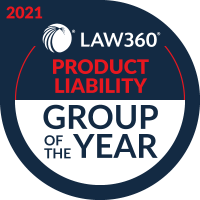Jordan Elias— October 25, 2018
For forty years, consumers haven’t been able to bring antitrust claims under the Sherman Act. Depending on how the Supreme Court decides a case this term, that may be about to change.
Illinois Brick
In its 1977 Illinois Brick decision, the Court ruled that federal Sherman Act claims are typically available only to those who bought directly from the antitrust offender.
Say, for instance, that a vitamin manufacturer has been secretly meeting with its competitors to agree on prices they will charge. If that company sells the vitamins to a distributor, which sells them to a retailer, which sells them to a consumer, only the distributor can recover its damages under federal law. Neither the consumer nor the retailer (nor any other “indirect” purchaser) has a federal claim.
The Court explained that direct purchasers have the most incentive to enforce the law and that trying to figure out the damage to each level of purchaser could lead to double recovery.
Illinois Brick led about half the states to enact “repealer” statutes that allow consumers to sue antitrust violators, including in class actions. This incomplete patchwork of state laws provides the basis for skilled class action attorneys to return money to consumers who overpaid due to anticompetitive behavior.
What’s the Latest?
An upcoming case presents the Court with the opportunity to decide whether this framework makes sense, or whether it’s better for all purchasers—regardless of their position on the distribution chain—to be able to bring federal antitrust claims.
In Apple Inc. v. Pepper, which is set to be argued the Monday after Thanksgiving, the Court will reconsider Illinois Brick against the backdrop of digital commerce.
Pepper’s Allegations
Apple pockets 30% of the money from sales on its App Store. So when you buy an app for your iPhone, the app developer only gets 70%. The plaintiffs in Pepper alleged that Apple wouldn’t have been able to take this 30% cut if it had freely permitted competing app stores, and that the result of Apple’s monopoly has been higher app prices.
Lower Court Rulings
The district court dismissed the plaintiffs’ Sherman Act claims even though they alleged that they paid Apple directly for apps. The court found that Apple was acting as a middleman for the app developers that set the prices. So any recovery from Apple would represent damages unavailable under Illinois Brick because they’d been passed down the chain of distribution that began with the app developer.
The Ninth Circuit reversed, holding that Apple was filling the traditional role of a distributor of services and that the plaintiffs could pursue federal claims since they transacted directly with Apple in that role.
How Will the Supreme Court Rule?
Thirty-one attorneys general—from states ranging from Texas to Massachusetts—have urged the Supreme Court to overturn Illinois Brick. Meanwhile, both Apple and the plaintiffs have argued that they should win the appeal under Illinois Brick. Apple, for example, contends that the app-distribution services it allegedly monopolized were not even purchased by consumers, but instead were purchased by app developers.
No matter how the Court comes out, its decision in Apple v. Pepper will have important consequences for consumer protection and antitrust class actions in the digital economy.
* * *
Girard Sharp LLP represents consumers, investors, and institutions in class actions and other complex litigation nationwide. Our antitrust team works to ensure fair competition and integrity in the marketplace. Our attorneys bring deep knowledge of antitrust law to bear in these cases, with particular skill in cases against pharmaceutical companies that collude to keep drug prices high. Girard Sharp LLP has earned top-tier rankings from U.S. News & World Report for Securities and Class Action Litigation and was honored as a 2018 Elite Trial Lawyers finalist by the National Law Journal.





